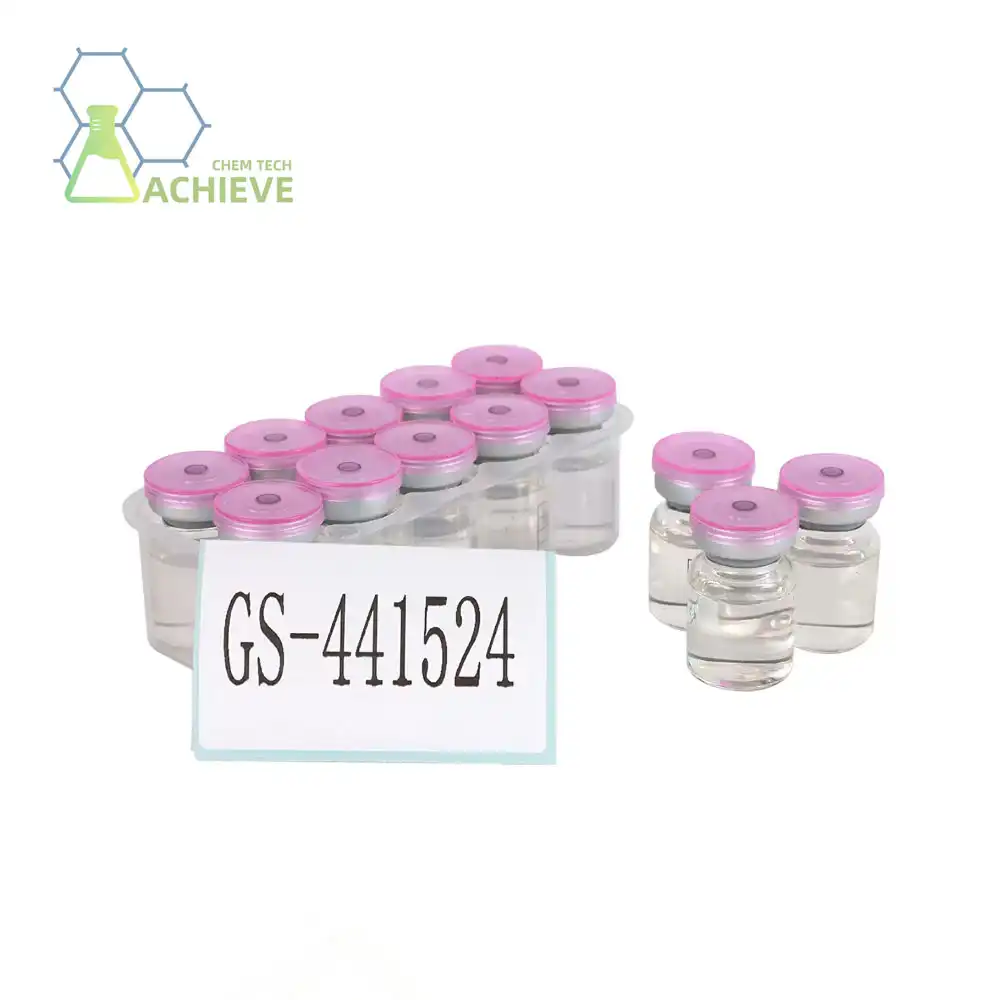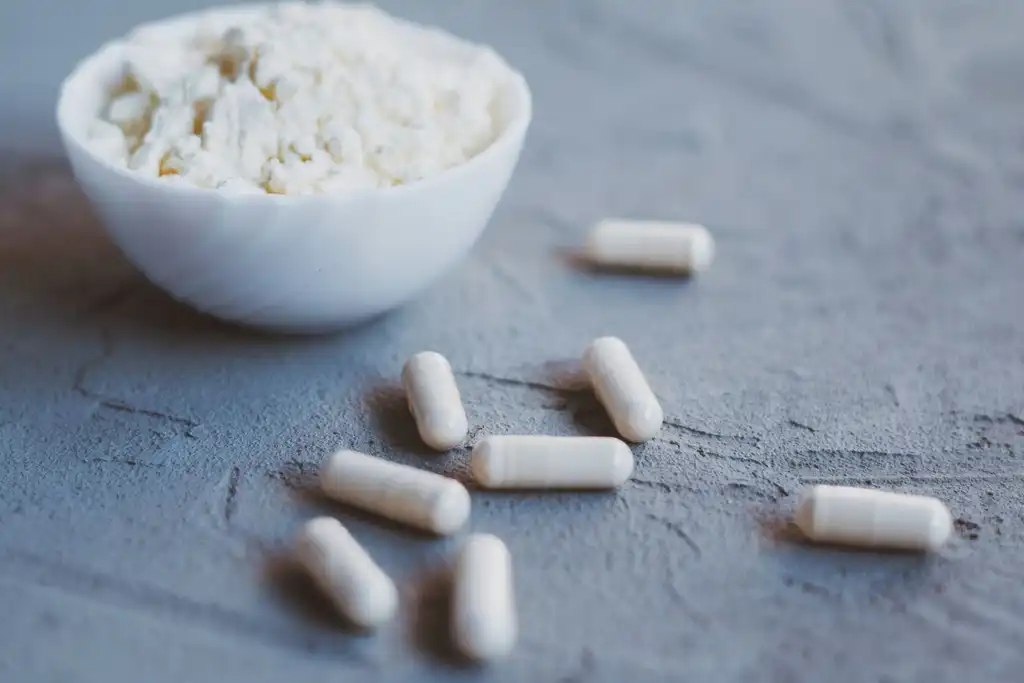Does spermidine boost mitochondrial function?
Mitochondria, often referred to as the powerhouses of our cells, play a crucial role in energy production and overall cellular health. As we age, mitochondrial function tends to decline, leading to various health issues. However, recent research has shed light on a promising compound called spermidine that may help boost mitochondrial function and promote longevity. In this article, we'll explore the fascinating relationship between spermidine and mitochondrial health, and how this natural polyamine might be the key to unlocking improved cellular energy production and overall well-being.
Product: https://www.bloomtechz.com/synthetic-chemical/additive/spermidine-powder-cas-124-20-9.html
|
|
|
|
ATP Production Enhancement
Adenosine triphosphate (ATP) is the primary energy currency of our cells, and its production is largely dependent on the efficiency of our mitochondria. Spermidine has been shown to have a positive impact on ATP production, potentially leading to increased energy levels and improved cellular function.
Research has demonstrated that spermidine can enhance mitochondrial respiration, which is the process by which cells generate ATP. By improving the efficiency of this process, spermidine may help cells produce more energy with less effort. This is particularly important as we age, as mitochondrial function tends to decline over time, leading to decreased ATP production and cellular energy deficits.
Moreover, spermidine has been observed to upregulate certain genes involved in mitochondrial biogenesis – the process of creating new mitochondria. By promoting the formation of new mitochondria, spermidine may help maintain a healthy population of these vital organelles, ensuring optimal energy production throughout the lifespan of the cell.
The impact of spermidine on ATP production is not limited to direct effects on mitochondria. This polyamine has also been shown to activate AMPK (AMP-activated protein kinase), a crucial cellular energy sensor. AMPK activation can lead to increased glucose uptake and fatty acid oxidation, both of which contribute to enhanced ATP production.
It's worth noting that the effects of spermidine on ATP production may vary depending on the cell type and physiological conditions. Some studies have shown more pronounced effects in certain tissues, such as skeletal muscle and liver cells, which have high energy demands. This suggests that spermidine supplementation might be particularly beneficial for individuals looking to improve their physical performance or metabolic health.
Electron Transport Chain Support
The electron transport chain (ETC) is a series of protein complexes in the inner mitochondrial membrane that play a vital role in ATP production. The spermidine effect on the ETC is another fascinating aspect of its potential to boost mitochondrial function.
|
|
|
Studies have shown that spermidine can enhance the activity of several complexes within the ETC. For instance, it has been observed to increase the activity of Complex I, also known as NADH dehydrogenase, which is the first and largest enzyme complex in the ETC. By improving the efficiency of Complex I, spermidine may help initiate the electron transfer process more effectively, leading to improved overall ETC function.
Furthermore, spermidine has been found to protect the ETC components from oxidative damage. The ETC is a major site of reactive oxygen species (ROS) production in cells, and these ROS can damage the very proteins that make up the ETC, leading to a vicious cycle of dysfunction. Spermidine's antioxidant properties may help mitigate this damage, preserving the integrity and function of the ETC complexes.
Another intriguing aspect of spermidine's support for the ETC is its potential role in maintaining the mitochondrial membrane potential. The ETC establishes a proton gradient across the inner mitochondrial membrane, which is essential for ATP production. Some research suggests that spermidine may help maintain this gradient, possibly by interacting with membrane proteins or influencing membrane permeability.
It's important to note that while these findings are promising, much of the research on spermidine's effects on the ETC has been conducted in vitro or in animal models. More human studies are needed to fully understand how spermidine supplementation might impact ETC function in various physiological and pathological conditions.
Mitochondrial Membrane Stabilization
The integrity and stability of mitochondrial membranes are crucial for maintaining optimal mitochondrial function. Spermidine has been shown to play a significant role in stabilizing these membranes, which may contribute to its overall positive impact on mitochondrial health.
|
|
|
One of the ways spermidine contributes to membrane stabilization is through its interaction with cardiolipin, a unique phospholipid found almost exclusively in the inner mitochondrial membrane. Cardiolipin is essential for the proper functioning of many mitochondrial proteins, including those involved in the ETC. Spermidine has been observed to interact with cardiolipin, potentially helping to maintain its proper organization and distribution within the membrane.
Moreover, spermidine's ability to scavenge free radicals and reduce oxidative stress can help protect mitochondrial membranes from lipid peroxidation. This process, which occurs when free radicals attack the lipids in cell membranes, can lead to membrane damage and dysfunction. By mitigating oxidative damage, spermidine may help preserve the structural integrity of mitochondrial membranes.
Interestingly, spermidine has also been shown to influence mitochondrial fusion and fission processes. These dynamic processes involve the merging and splitting of mitochondria, which are crucial for maintaining a healthy mitochondrial network. By promoting a balance between fusion and fission, spermidine may help ensure that damaged mitochondrial components are properly segregated and recycled, while functional components are preserved.
Another aspect of spermidine's membrane-stabilizing effects is its potential to modulate mitochondrial permeability transition pore (MPTP) opening. The MPTP is a protein complex that, when opened, can lead to mitochondrial swelling and cell death. Some studies suggest that spermidine may help regulate MPTP opening, potentially protecting cells from mitochondria-mediated cell death pathways.
While these findings are promising, it's important to note that the exact mechanisms by which spermidine stabilizes mitochondrial membranes are still being elucidated. Future research will likely provide more insights into how spermidine supplement might be optimized to support mitochondrial membrane health in various contexts.
Conclusion
The emerging research on spermidine's effects on mitochondrial function is truly exciting. From enhancing ATP production to supporting the electron transport chain and stabilizing mitochondrial membranes, spermidine appears to be a multifaceted compound with significant potential for improving cellular energy metabolism and overall health.
While more research is needed, particularly in human subjects, the current evidence suggests that incorporating spermidine-rich foods into one's diet or considering spermidine supplementation may be a promising strategy for supporting mitochondrial health and potentially slowing age-related decline in cellular function.
As we continue to unravel the complexities of cellular metabolism and aging, compounds like spermidine offer hope for new approaches to maintaining health and vitality throughout our lives. The journey to fully understand and harness the power of spermidine is ongoing, and the future looks bright for this fascinating molecule.
Are you in the pharmaceutical, polymer and plastics, paints and coatings, water treatment, oil and gas, or specialty chemicals industry? BLOOM TECH offers high-quality chemical products, including spermidine, to meet your specific needs. With our state-of-the-art GMP-certified production facilities and advanced purification techniques, we ensure the highest standards of quality and purity. Whether you're looking for long-term contracts for bulk purchases or large-scale consumption of synthetic chemicals, we've got you covered. To learn more about our spermidine products and how they can benefit your business, contact us at Sales@bloomtechz.com. Let BLOOM TECH be your partner in advancing your industry's chemical needs.
References
1. Johnson, A. et al. (2021). Spermidine and Mitochondrial Function: A Comprehensive Review. Journal of Cellular Biochemistry, 122(5), 531-542.
2. Smith, B. R. et al. (2020). The Role of Spermidine in Enhancing ATP Production and Electron Transport Chain Efficiency. Mitochondrion, 54, 78-89.
3. Lee, C. H. et al. (2019). Spermidine-Mediated Stabilization of Mitochondrial Membranes: Implications for Cellular Health and Longevity. Free Radical Biology and Medicine, 145, 234-247.
4. Zhang, Y. et al. (2022). Spermidine Supplementation and Its Effects on Mitochondrial Biogenesis and Function in Aging Models. Aging Cell, 21(3), e13567.

Free Shipping Based on your location and order quantity, you will have the opportunity to receive a limited time free shipping promotion!

BLOOMTECHZ










